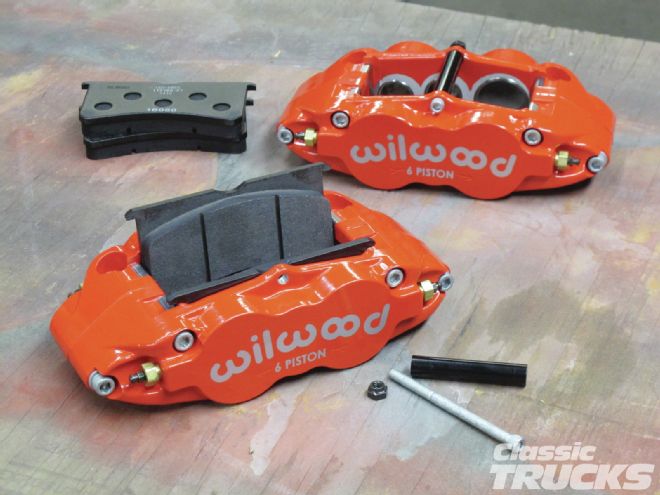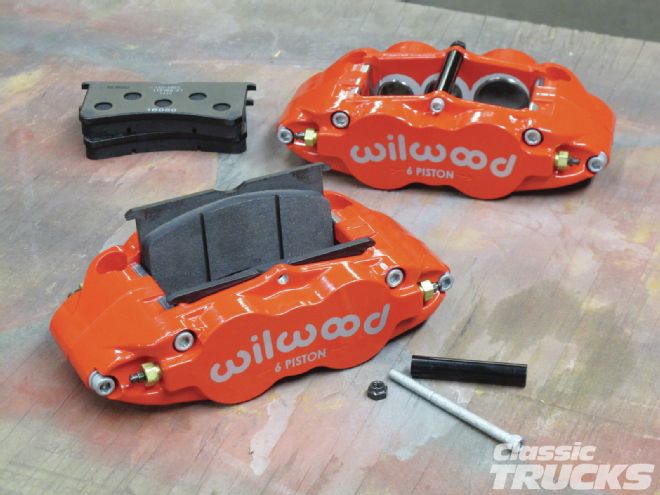
Back in the day, drum brakes were the only option for the ’40s and ’50s pickups. It was not until the ’60s when GM and Ford offered the option for disc brakes. When I worked as a mechanic, I replaced tons of front and rear leaky wheel cylinders only to fail prematurely and seep, causing loss of brake fluid. When loosing fluid through a leaky drum wheel cylinder, a single reservoir master cylinder would loose brake pressure and eventually fail, not to mention, cracking the brake drum shoes due to over tightening the adjuster and or overheating.

This leads me to disc brakes and, as you already know, disc brakes offer the driver a better brake feel in the pedal and get rid of the annoying front drum brake adjustment. What you may not know is that disc brakes such as Wilwood Disc Brakes has been working on and perfecting disc brakes since 1977. So, why are disc brakes preferred over drum brakes? Well, for the most part, disc brakes have repeatable performance that drums simply cant duplicate, this means that if you get yourself in a need to stop situation, drum brakes may or may not stop with the same predictable manner as a good set of disc brakes. Disc brakes also have a major advantage over drum brakes due to the open-air design of the braking parts. With a disc-brake setup, hydraulic fluid is used to apply pressure on the calipers piston that is machined to fit inside the caliper. As the brake pedal is applied, the calipers piston, or on better brakes such as Wilwood four- or six-piston calipers, will apply pressure on the brake pads. The pads then apply pressure and causes a resistance or heat to the rotor causing it to slow down the rate that the rotor is turning, thus stopping the wheel and vehicle. The direct air around the vehicle’s braking components then reduces the heat from the braking process. Drum brakes don’t have the ability to cool as quickly because they are housed inside the drum and air does not pass through as freely as disc brakes, thus causing brake fade or complete loss in braking on the older style drum brakes. These facts were first discovered by racers that were using disc brakes on race cars and could apply their brakes later than those running drum brakes and were still be able to stop faster without over heating braking components. Eventually, the design would make it into just about every production motorized vehicle on the road today.
Skipping forward to modern day technologies in braking, Wilwood Disc Brakes offer the ability to cool the brake rotor more efficiently than the standard brake rotor. They do this by casting the rotor out of specially designed iron and designing the internal vanes to pump cold air from the center of the wheel to take heat away from the rotor. Wilwood also offers drilled and slotted rotors that help prevent pad glaze and disperse gasses and heat generated during the pad to rotor interface. Plus, Wilwood is now coating rotors with a black electro coating they call E-coating, this coating will burn off the rotor to pad surface but remain in the cracks and crevices to help prevent rust. CT